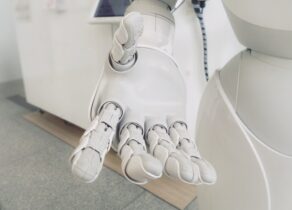Artificial intelligence (AI) is constantly reshaping our lives. It saves companies and us time and money, but it has applications that can be applied to medicine, potentially saving our lives.
We can understand AI’s evolution and achievements to model future developmental strategies. One of AI’s most significant medical impacts is already being seen in and will continue in oncology.
AI has opened essential opportunities for cancer patient management and is being applied to aid in the fight against cancer on several fronts. We will look into these and see where AI can best aid doctors and patients in the future.
Where Did AI Come From?
Alen Turing first conceived the idea of computers mimicking critical thinking and intelligent behavior in 1950, and by 1956 John McCarthy came up with the term Artificial Intelligence (AI).
AI started as a simple set of “if A then B” computing rules but has advanced dramatically in the years since, comprising complex multi-faceted algorithms modeled after and performing similar functions to the human brain.
AI and Oncology
AI has now taken hold in so many aspects of our lives that we often do not even realize it. Yet, it remains an emerging and evolving model that benefits different scientific fields, including a pathway of aid to those who manage cancer patients.
AI has a specific task that it excels at. It is especially good at recognizing patterns and interactions after being given sufficient training samples. It takes the training data to develop a representative model and uses that model to process and aid decision-making in a specific field.
When applied to precision oncology, AI can reshape the existing processes. It can integrate a large amount of data obtained by multi-omics analysis. This integration is possible because of advances in high-performance computing and several novel deep-learning strategies.
Notably, applications of AI are constantly expanding in cancer screening and detection, diagnosis, and classification. AI is also aiding in the characterization of cancer genomics and the analysis of the tumor microenvironment, as well as the assessment of biomarkers for prognostic and predictive purposes. AI has also been applied to follow-up care strategies and drug discovery.
Read the full article here.






